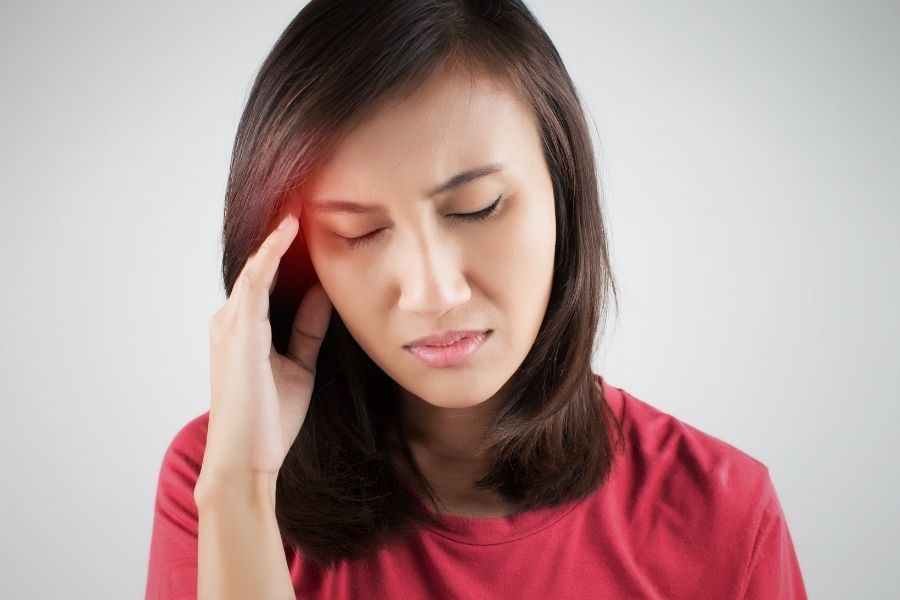
A headache refers to pain at any part of the head. It may be on one or both sides of the head and may be a sharp, pounding pain or a dull ache. Headaches may last for less than an hour to a few days. The most common headaches are tension-type headache and cluster headache.
Tension-type headache:
- A feeling of tightness and dull pressure around the forehead and sometimes at the neck
- Last for minutes to days
- Can be caused by stress, tiredness, tense muscles or anxiety
Cluster headache:
- A very bad pounding pain that is one-sided and located around or behind the eye
- Becomes painful quickly, often within minutes
- Usually comes with blocked or runny nose. The eye on the affected side may also become red, teary and swollen.
- The cause of cluster headache is unknown, but smoking and alcohol use may trigger it.
What you can do
- Baths and massages may be useful to ease a headache.
- Rest in a dark and quiet room
- Take an over-the-counter painkiller, e.g. paracetamol or ibuprofen
When to see a doctor
A headache may sometimes point to a serious illness. See a doctor if your headache:
- Happens suddenly and is very bad (e.g. feels like the worst headache of your life)
- Happens after a head injury
- Comes with fever, stiff neck, feeling confused, numbness, weakness, changes in eye sight or difficulties in speaking
- Becomes more often and/or worse
- Does not go away after taking over-the-counter medicines
- Is affecting your everyday activities
You can prevent headache
- Keep a diary to track your food intake, amount of sleep, any stressful events or other activities that may have caused the headache
- Make some lifestyle changes
- Change your sleep habits to increase your sleep quality
- Get more sleep and rest
- Exercising regularly
- Keep a healthy diet - Reduce stress by using relaxation methods like meditation, yoga or deep breathing
- Stretch your neck and shoulder muscles once in a while when reading or using the computer
- Keep a good posture when standing or sitting to reduce stress on your muscles
- Do not smoke
- Avoid drinking too much alcohol
Updated Dec 2022
This article does not take the place of talking to your doctor or pharmacist. People with special health needs such as babies, children below 12 year old, elderly and pregnant ladies should see a doctor instead of self-treatment. Always read the instructions and warnings on the package before taking any medicine.
.png)



















































